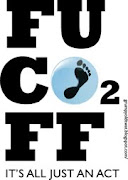... Incidentally, sir, we have received a missive from Diamond King of Trolls, thanking us for our firm stance on the drugs issue. Well done, sir.’Seems fair enough to me. What you choose to put into your body should be entirely up to you, though of course you would still responsible for your actions when you're under the influence of whatever it is you've taken, but selling you something that's certain to kill you on the spot is not on. In reality nobody making a quid either illegally or legally from recreational drugs - and as usual I include alcohol and tobacco, and I suppose possibly caffeine as well - has any interest in killing customers since dead people have a tendency to stop buying the produce. Some of these things are dangerous and may kill some users eventually, though often that's as much a result of the adulteration that's commonplace with illegal drugs as a result of the drug itself, but if any drug was both rapidly and universally lethal it would have no market. People want to get high, but very few want to get high so badly they'll take something from which they will definitely never come down. In fact the only time I've heard of a drug being deliberately made toxic it was on the orders of a government who did have a particular objection to people taking a substance that made them feel better and more contented, and, for that matter,
‘Hardly a concession,’ Vetinari observed, waving it away. ‘You know my position, Drumknott. I have no particular objection to people taking substances that make them feel better or more contented, or, for that matter, see little dancing purple fairies – or even their god if it comes to that. It’s their brain, after all, and society can have no claim on it, providing they’re not operating heavy machinery at the time. However, to sell drugs to trolls that actually make their heads explode is simply murder, the capital crime.'
Snuff, Terry Pratchett
Frustrated that people continued to consume so much alcohol even after it was banned, federal officials had decided to try a different kind of enforcement. They ordered the poisoning of industrial alcohols manufactured in the United States, products regularly stolen by bootleggers and resold as drinkable spirits. The idea was to scare people into giving up illicit drinking. Instead, by the time Prohibition ended in 1933, the federal poisoning program, by some estimates, had killed at least 10,000 people.Even now one foreseeable side effect of so many recreational drugs being illegal that they will end up being both more expensive and less safe through being adulterated with Christ knows what, and another is that people will turn to alternative drugs when their preferred choice is either too expensive or too hard to find. Because of this desire of certain people to make everyone else live to their standards rather than live as each chooses* we have almost the polar opposite of Vetinari's stance on the drug's issue - the belief is that user's brains are not their own and society does have a claim on them, and official policy has had the inevitable effect of making drugs more dangerous, sometimes deliberately.
[...]
Rigorous enforcement had managed to slow the smuggling of alcohol from Canada and other countries. But crime syndicates responded by stealing massive quantities of industrial alcohol—used in paints and solvents, fuels and medical supplies—and redistilling it to make it potable.
Well, sort of. Industrial alcohol is basically grain alcohol with some unpleasant chemicals mixed in to render it undrinkable. The U.S. government started requiring this "denaturing" process in 1906 for manufacturers who wanted to avoid the taxes levied on potable spirits. The U.S. Treasury Department, charged with overseeing alcohol enforcement, estimated that by the mid-1920s, some 60 million gallons of industrial alcohol were stolen annually to supply the country's drinkers. In response, in 1926, President Calvin Coolidge's government decided to turn to chemistry as an enforcement tool. Some 70 denaturing formulas existed by the 1920s. Most simply added poisonous methyl alcohol into the mix. Others used bitter-tasting compounds that were less lethal, designed to make the alcohol taste so awful that it became undrinkable.
To sell the stolen industrial alcohol, the liquor syndicates employed chemists to "renature" the products, returning them to a drinkable state. The bootleggers paid their chemists a lot more than the government did, and they excelled at their job. Stolen and redistilled alcohol became the primary source of liquor in the country. So federal officials ordered manufacturers to make their products far more deadly.
By mid-1927, the new denaturing formulas included some notable poisons—kerosene and brucine (a plant alkaloid closely related to strychnine), gasoline, benzene, cadmium, iodine, zinc, mercury salts, nicotine, ether, formaldehyde, chloroform, camphor, carbolic acid, quinine, and acetone. The Treasury Department also demanded more methyl alcohol be added—up to 10 percent of total product. It was the last that proved most deadly.
The results were immediate, starting with that horrific holiday body count in the closing days of 1926. Public health officials responded with shock. "The government knows it is not stopping drinking by putting poison in alcohol," New York City medical examiner Charles Norris said at a hastily organized press conference. "[Y]et it continues its poisoning processes, heedless of the fact that people determined to drink are daily absorbing that poison. Knowing this to be true, the United States government must be charged with the moral responsibility for the deaths that poisoned liquor causes, although it cannot be held legally responsible."
Why does sanity have to come from the pen of a man who writes about trolls and dwarves and magic, and, sadly, who is also suffering from early onset Alzheimer's? And what does that say about the people who really are responsible for drugs policy?
* As a libertarian I have no desire to force other people to be libertarians as well. I'll try to persuade them it's a good idea but if they want to be neo-puritans Tories or socialists dumbly obedient to the state or whatever then that's up to them. That's their drug of choice and if they can do it without harming me I have no objection, just as I have no objection to people smoking, drinking or getting stoned around me if I'm not affected by it. The annoying reality is that neo-puritans and statists of all stripes have done me far more harm than drug users have, and much of the little harm I've suffered that was probably drug related (losses from a car break in and higher insurance, if you must know) may not have happened if drugs policies hadn't made the damn things cost more than they need to.









